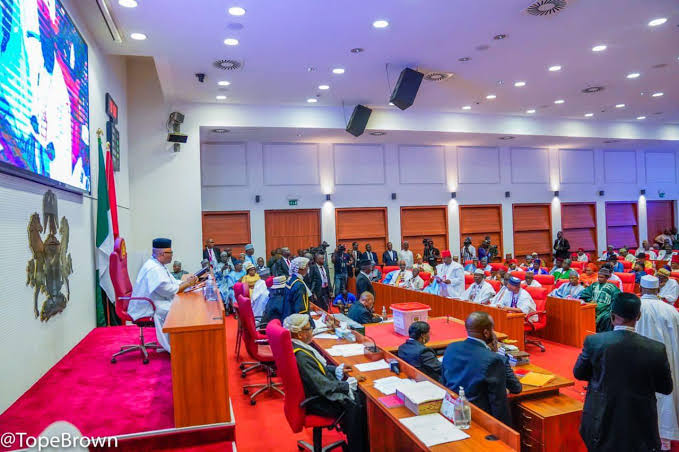A bill aimed at repealing the National Identity Management Commission (NIMC) Act of 2007 has successfully passed its second reading in the Senate. This significant legislative move is set to usher in a new era for national identity management in Nigeria, focusing on the establishment and maintenance of a National Identity Database.
The bill, which was initially introduced on June 5, is sponsored by the Deputy Senate President, Senator Barau Jibrin. It envisions a comprehensive overhaul of the current identity management system, aiming to enhance its efficiency and inclusivity. By updating and improving existing provisions, the proposed legislation seeks to align Nigeria’s identity management framework with global best practices.
During the lead debate, the importance of this bill was underscored, emphasizing its critical role in the socio-economic and political development of the country. The proposed changes are not just about administrative efficiency; they are also vital to national security and the establishment of a robust and reliable identity management system.
One of the primary objectives of the bill is to streamline the sharing of personal data while incorporating stringent data protection measures. These measures are designed to safeguard the privacy and confidentiality of individuals’ data, fostering trust among citizens in how their information is handled. This aspect of the bill is particularly crucial in an era where data breaches and privacy concerns are prevalent.
 The bill assigns the NIMC with key responsibilities, including the maintenance of the national database, the registration of individuals, and the issuance of identity credentials. By doing so, it aims to create a more organized and secure system that can support various government and private sector initiatives. The new framework is expected to facilitate easier access to services, reduce identity fraud, and improve overall governance.
The bill assigns the NIMC with key responsibilities, including the maintenance of the national database, the registration of individuals, and the issuance of identity credentials. By doing so, it aims to create a more organized and secure system that can support various government and private sector initiatives. The new framework is expected to facilitate easier access to services, reduce identity fraud, and improve overall governance.
Senator Barau Jibrin highlighted that the proposed legislation is designed to address existing gaps and inefficiencies in the current system. By introducing more comprehensive and updated provisions, the bill seeks to ensure that the identity management system is capable of meeting the evolving needs of the nation. The emphasis on global best practices reflects an understanding of the need to stay abreast of international standards and innovations in identity management.
In summary, the passage of this bill through its second reading marks a significant step towards reforming Nigeria’s identity management system. The comprehensive approach adopted by the bill aims to enhance the reliability, security, and inclusivity of the system, thereby contributing to the broader socio-economic and political development of the country. As the legislative process continues, stakeholders and citizens alike will be watching closely to see how these proposed changes will be implemented and what impact they will have on the nation’s identity management landscape.




